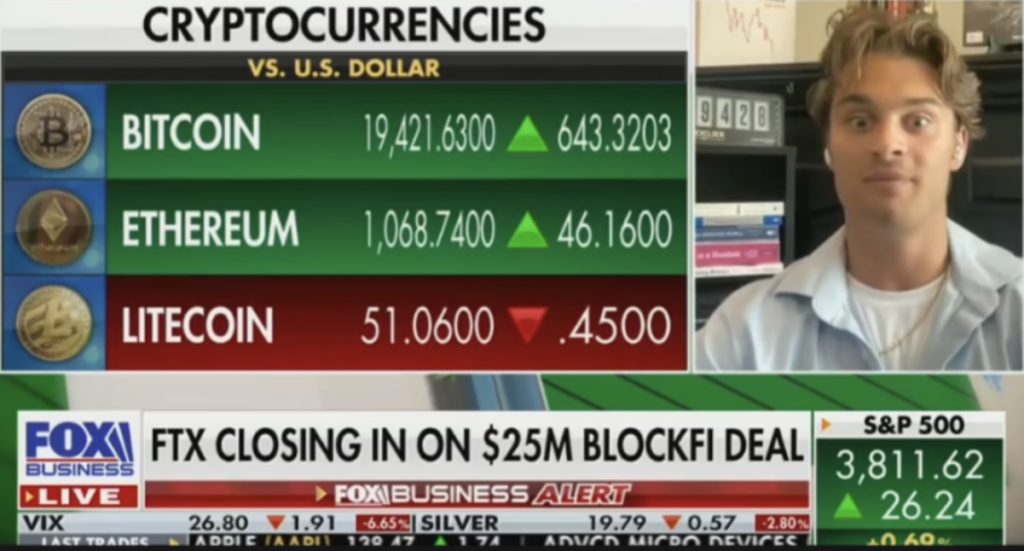
Bitcoin Magazine’s Dylan LeClair predicted Friday that bitcoin would recover after “irresponsible debt” had been liquidated.
He made the prediction in an afternoon interview with Fox Business Network’s Charles Payne, comparing this year’s cryptocurrency climate to the 2008 collapse of banking giant Lehman Brothers.
“This is kind of … bitcoin’s Lehman [Brothers] moment, where we have this contagion,” LeClair said. “Balance sheets across the industry are are getting absolutely wrecked. But ultimately, the beauty of Bitcoin is there is no lender of last resort, right? So ultimately, all of this kind of malinvestment, all of this irresponsible debt is going to get liquidated, it’s going to get purged, and Bitcoin will recover.
“A similar kind of thing happened in March of 2020, [when] Bitcoin traded from $10,000 to $3,800 in a span of just a couple of days,” he noted. “Ultimately, we know what happened and what followed. The liquidation of this bad debt is ultimately a good thing in the the long run.”
Crypto giants began collapsing last month as a result of TerraForm Labs’ stablecoin, TerraUSD (UST), depegging from the U.S. dollar in May. The token became worthless, shedding $18.7 billion in market capitalization, and also caused investors to flee from TerraForm’s cryptocurrency, LUNA, causing another $41 billion in value to vanish almost overnight.
Hedge fund Three Arrows Capital took a loss of at least $200 million loss on LUNA’s collapse, contributing to its court-ordered bankruptcy last week. That came after the firm defaulted on a loan from crypto-lender BlockFi, causing a loss of about $80 million for that company. BlockFi announced this week that it had reached an agreement for a bailout package from FTX Exchange that included a $400 million line of credit.
RELATED: Looking for a New Crypto Exchange? Try Phemex
The Terra ecosystem’s collapse also contributed to the crypto-lender Celsius Network’s insolvency. That company announced in early June that it was freezing customer assets, and is in a process of determining whether to restructure or file for bankruptcy.
LeClair called it a “contagion event of balance sheet impairment” and said rehypothecation — the practice of using loan collateral to pay customers — contributed to the systemic breakdown.
“I think ultimately this is just proving that kind of the yields of these consumer-facing platforms that were presented as savings account to retail users — that actually these platforms are undergoing very risky arbitrage trading, taking risk that wasn’t really quantifiable,” he said. “Ultimately, the real problem here was the rehypothecation of user deposits, the rehypothecation of coins. And … also the unsecured lending that took place in this industry. That’s why we see, again, the daisy chain of defaults occurring.”
You can watch the full interview above via YouTube.

 Bitcoin
Bitcoin  Ethereum
Ethereum  Tether
Tether  XRP
XRP  Solana
Solana  Dogecoin
Dogecoin  Cardano
Cardano  Chainlink
Chainlink  Avalanche
Avalanche  Polkadot
Polkadot  Monero
Monero  Cronos
Cronos  Aave
Aave  Algorand
Algorand  Tezos
Tezos  Axie Infinity
Axie Infinity  Polygon
Polygon  Onyxcoin
Onyxcoin  Golem
Golem  Flux
Flux